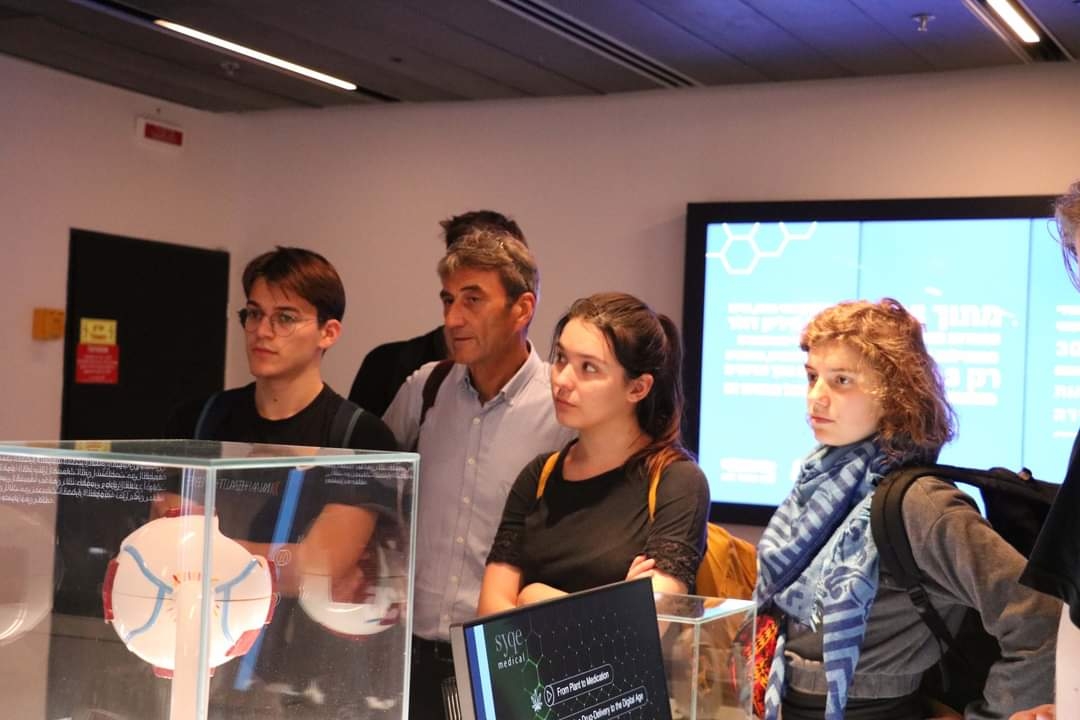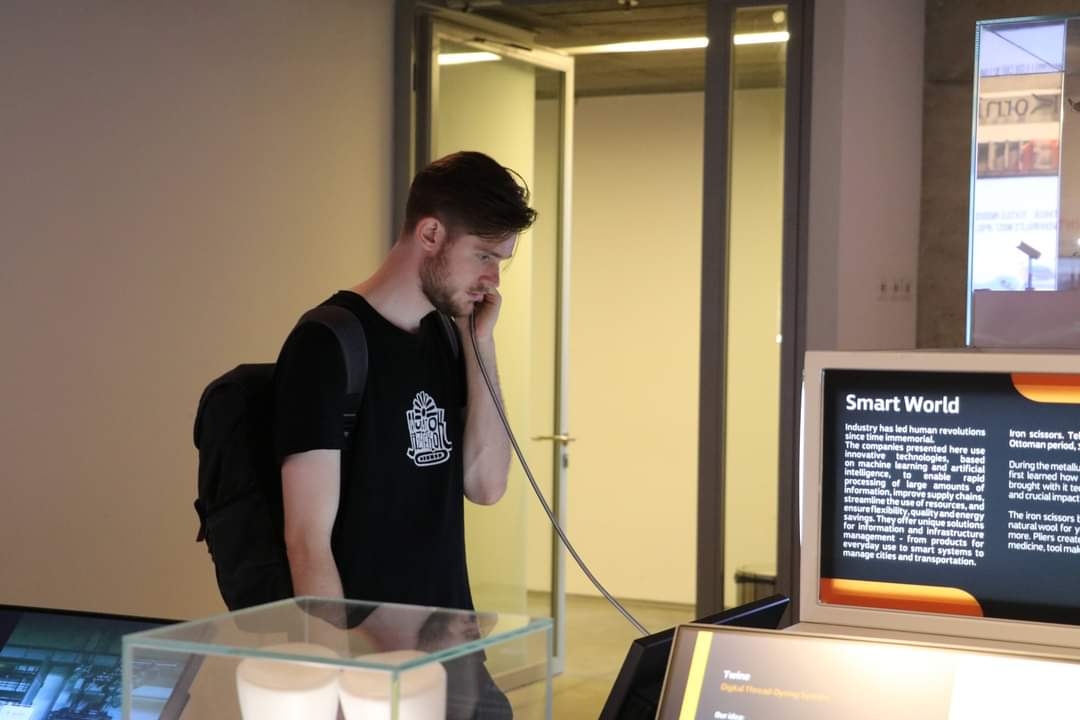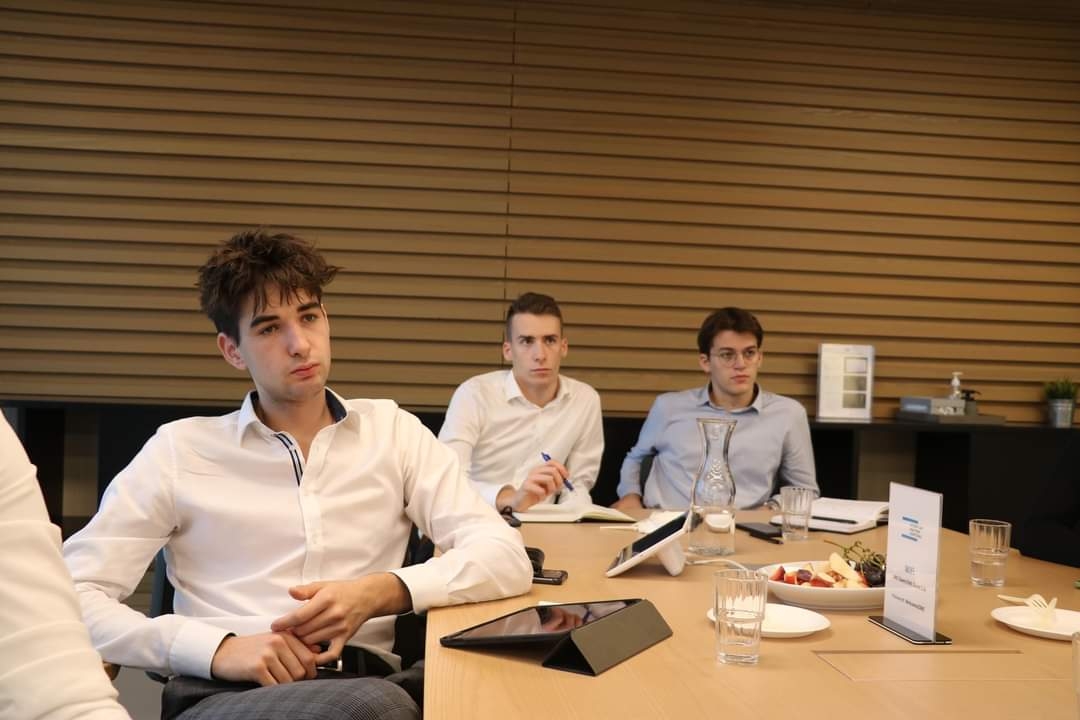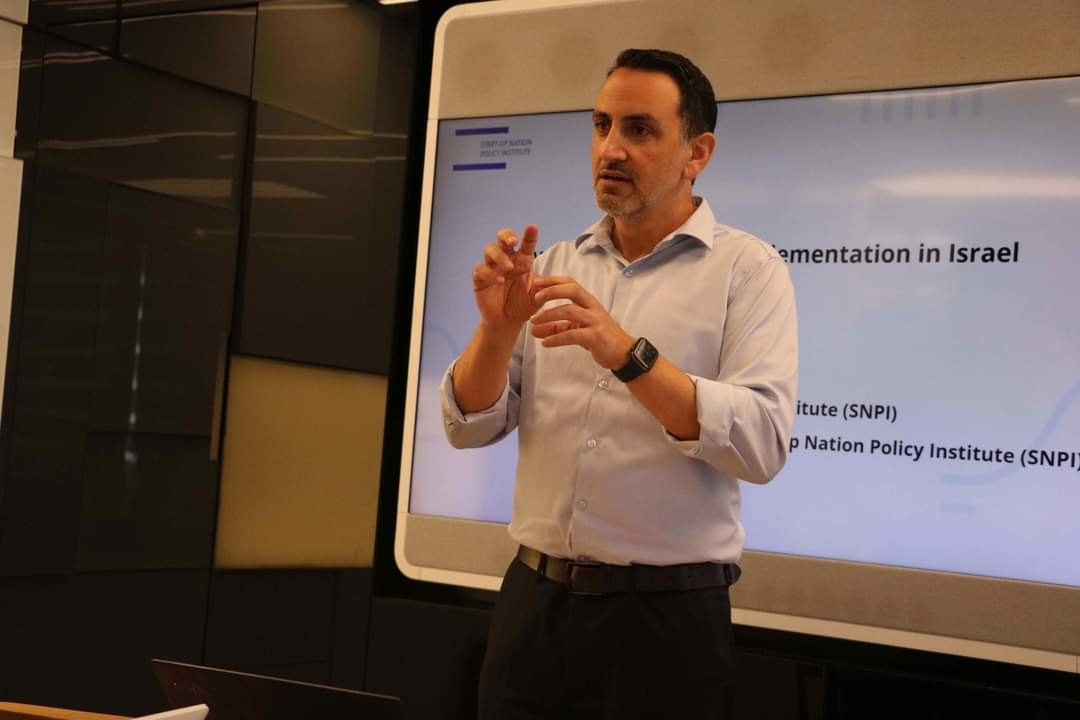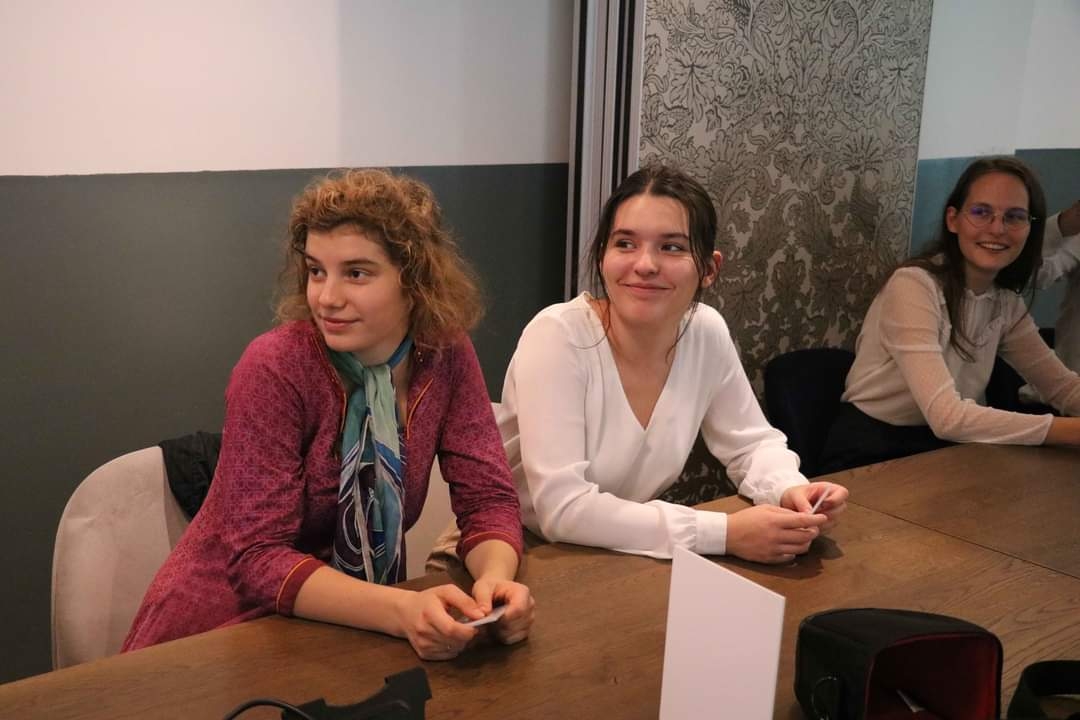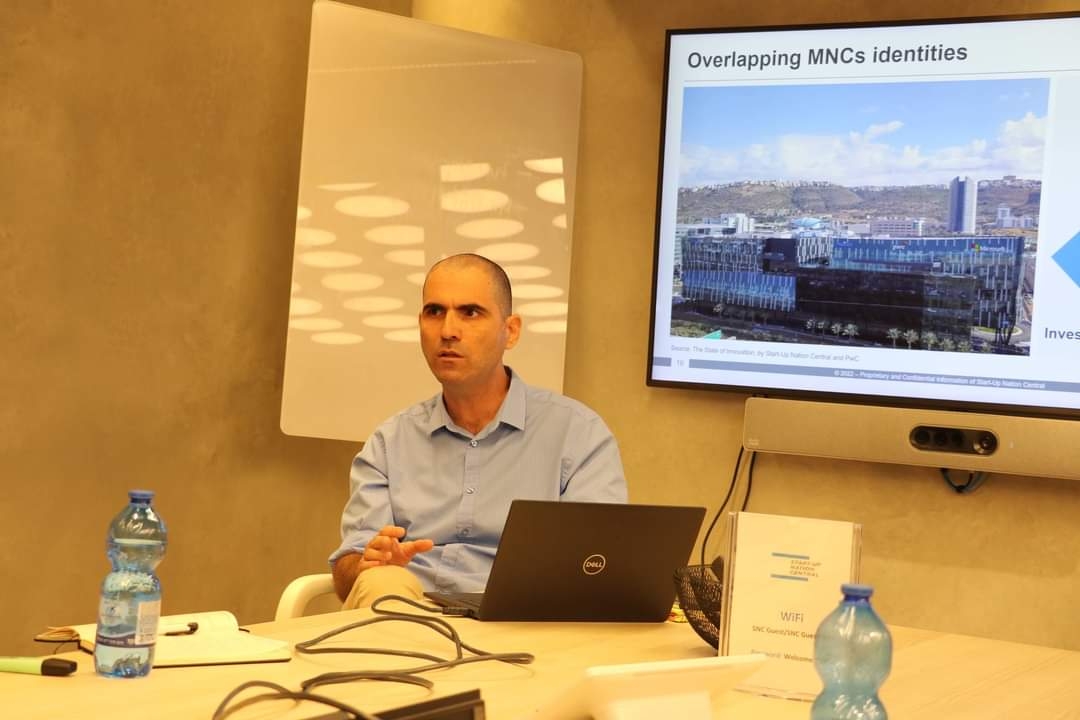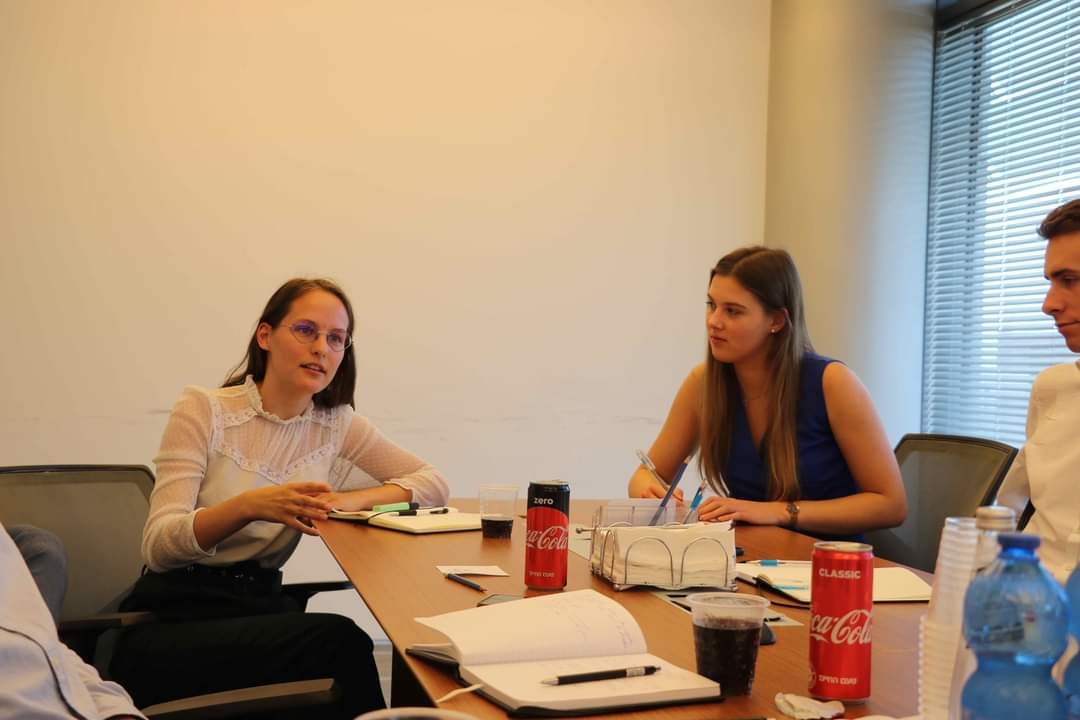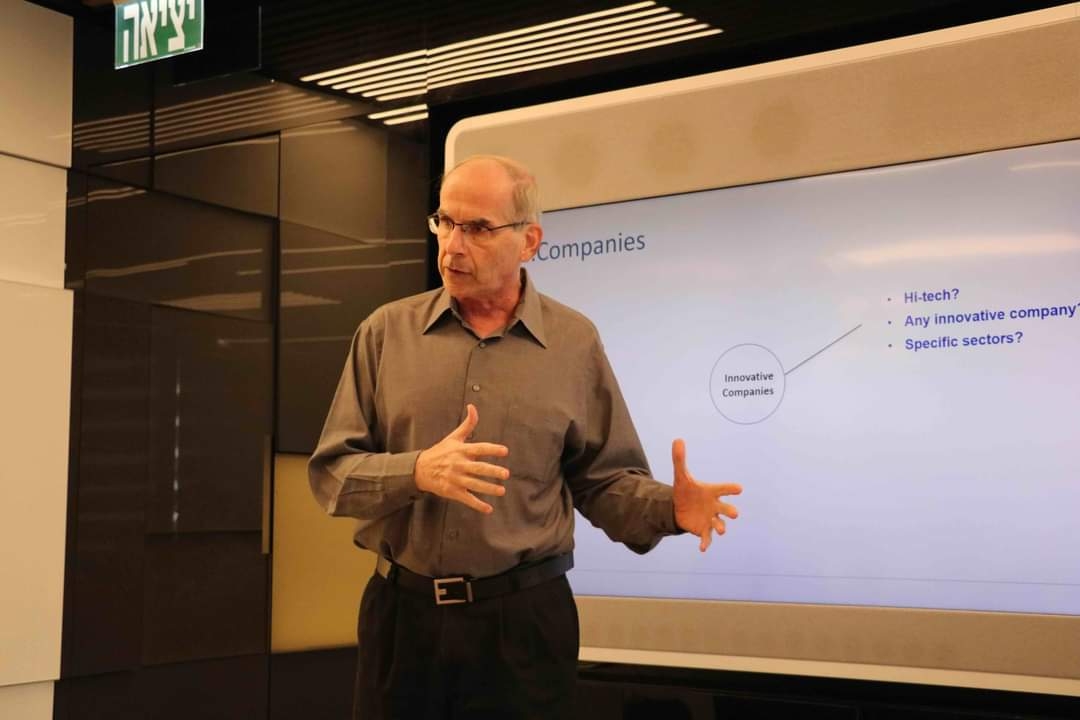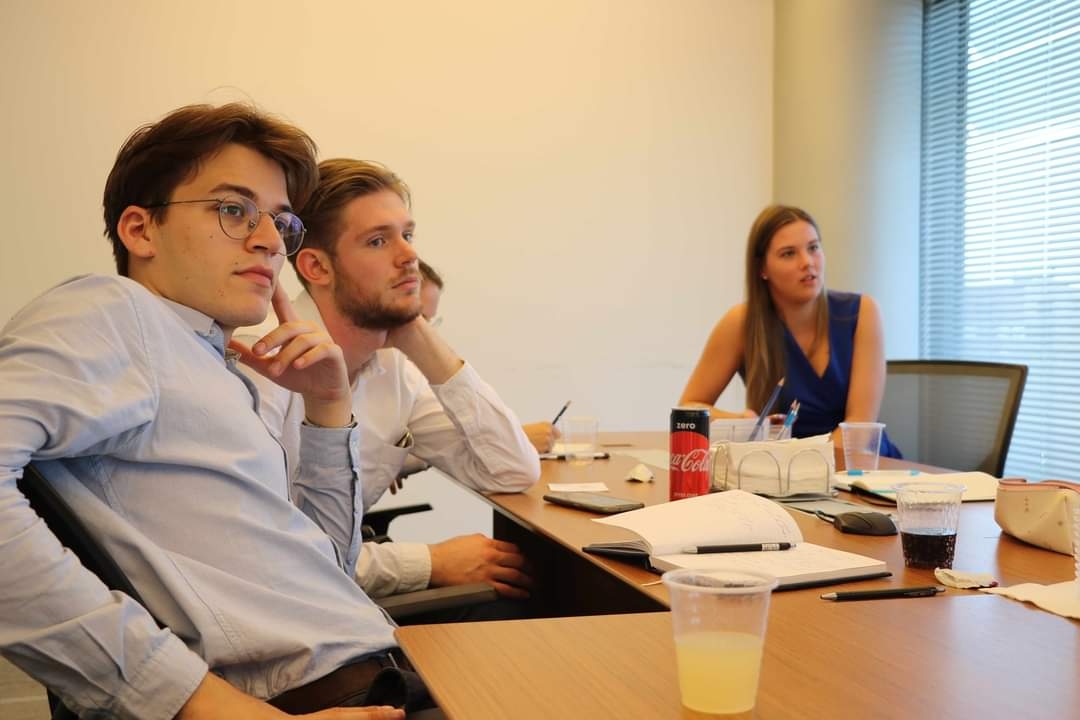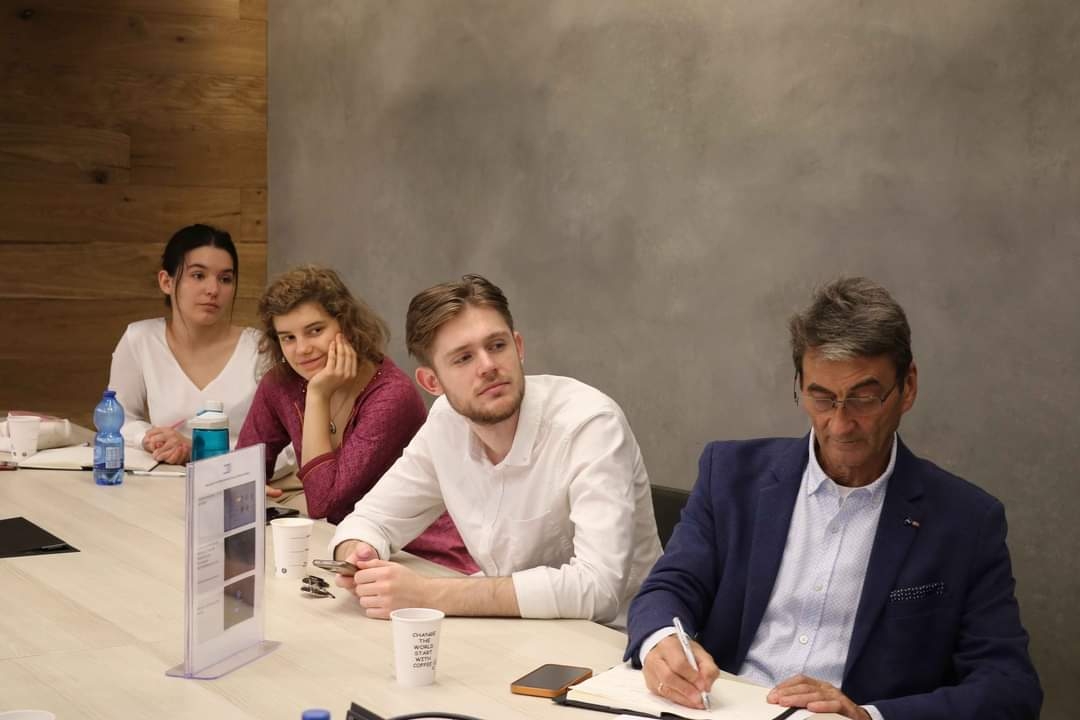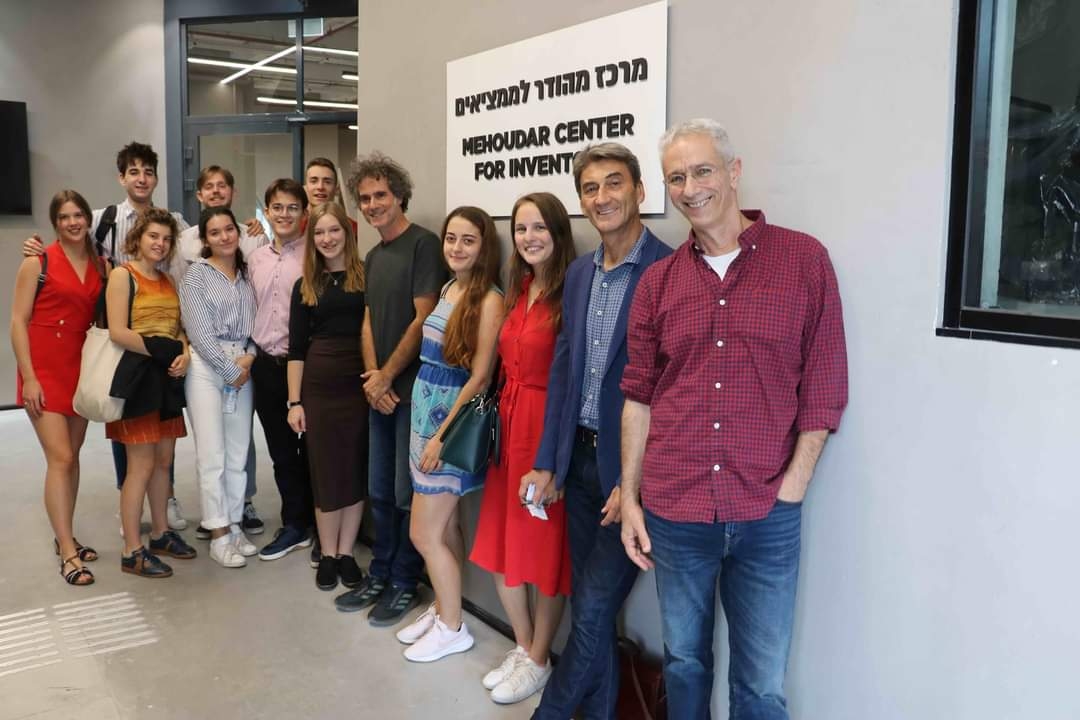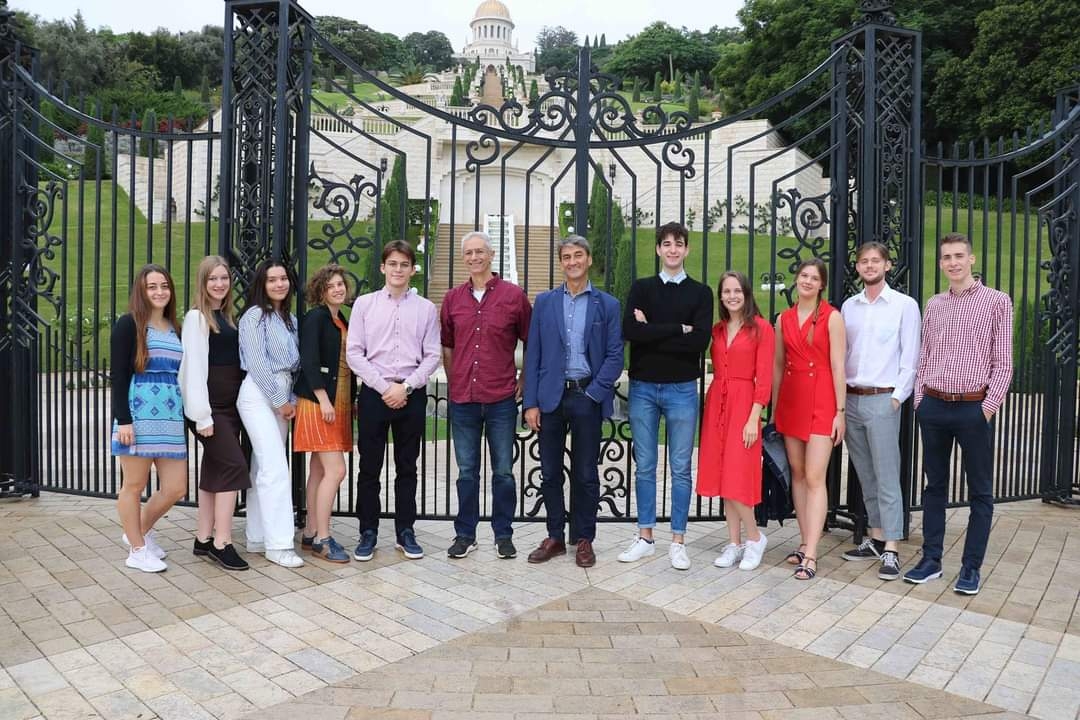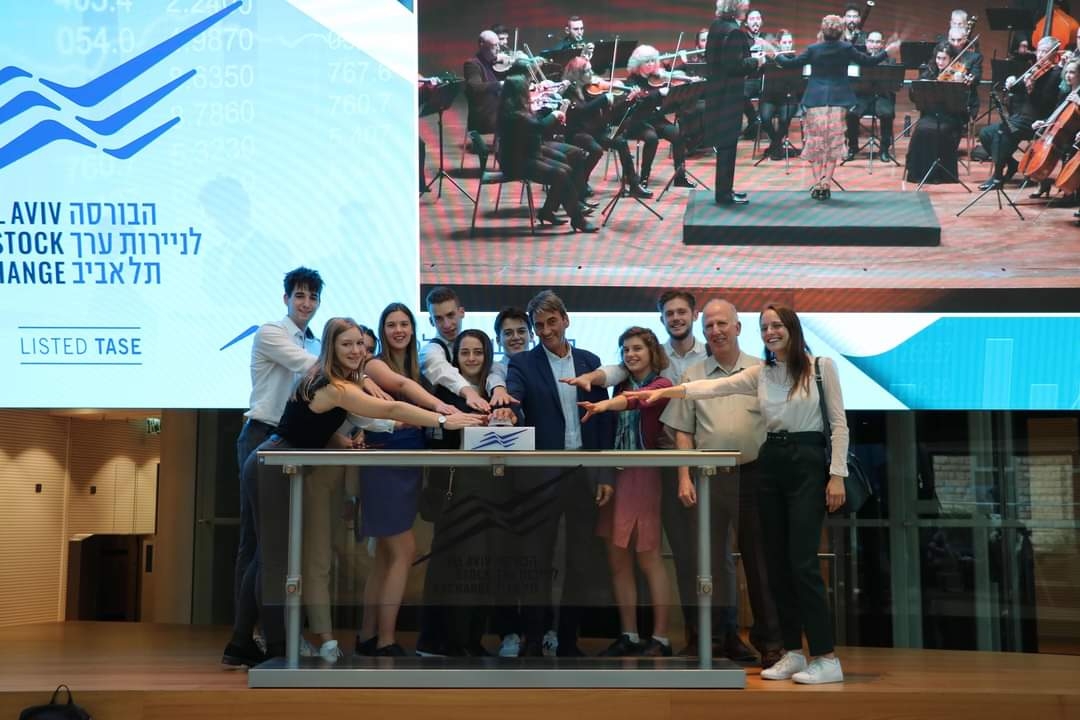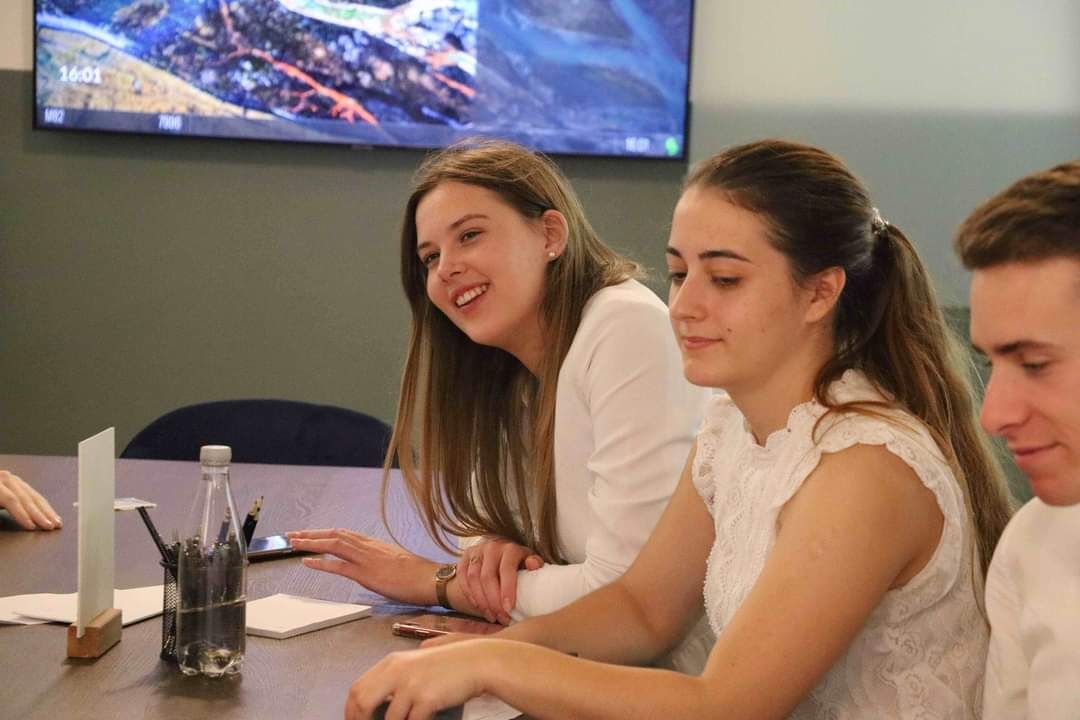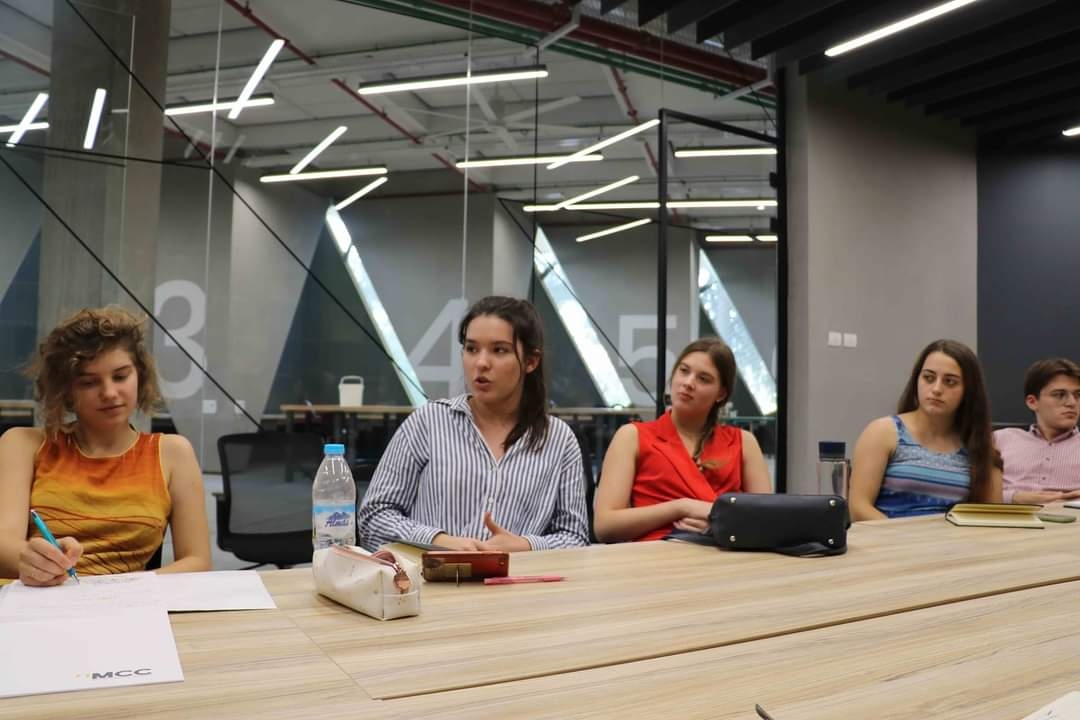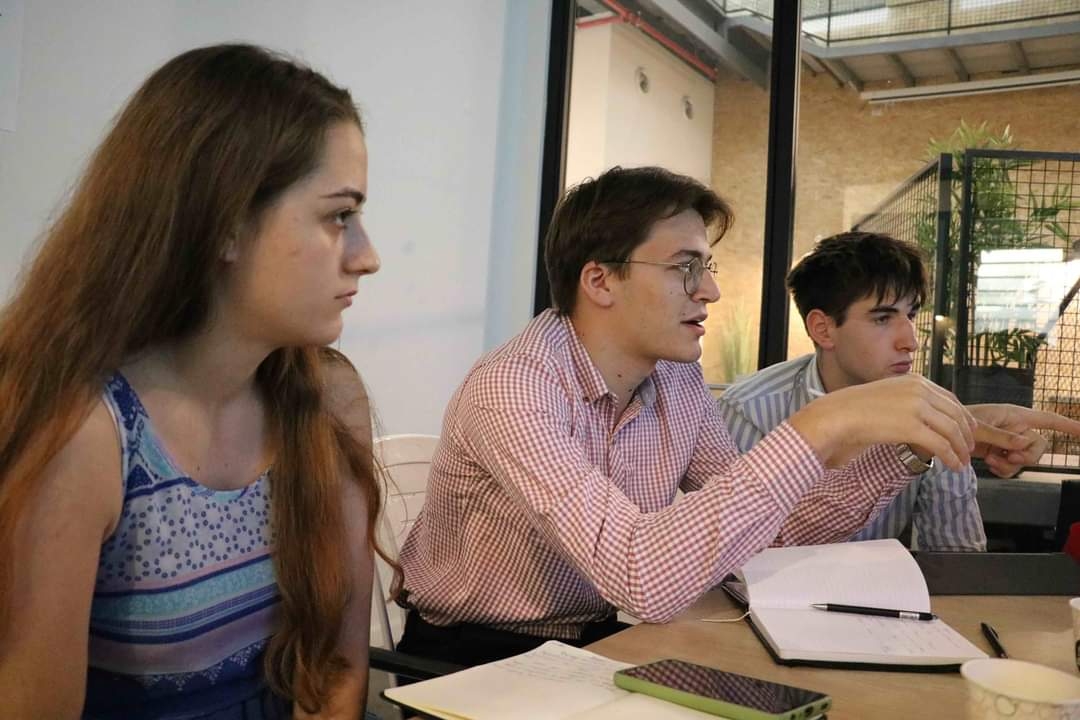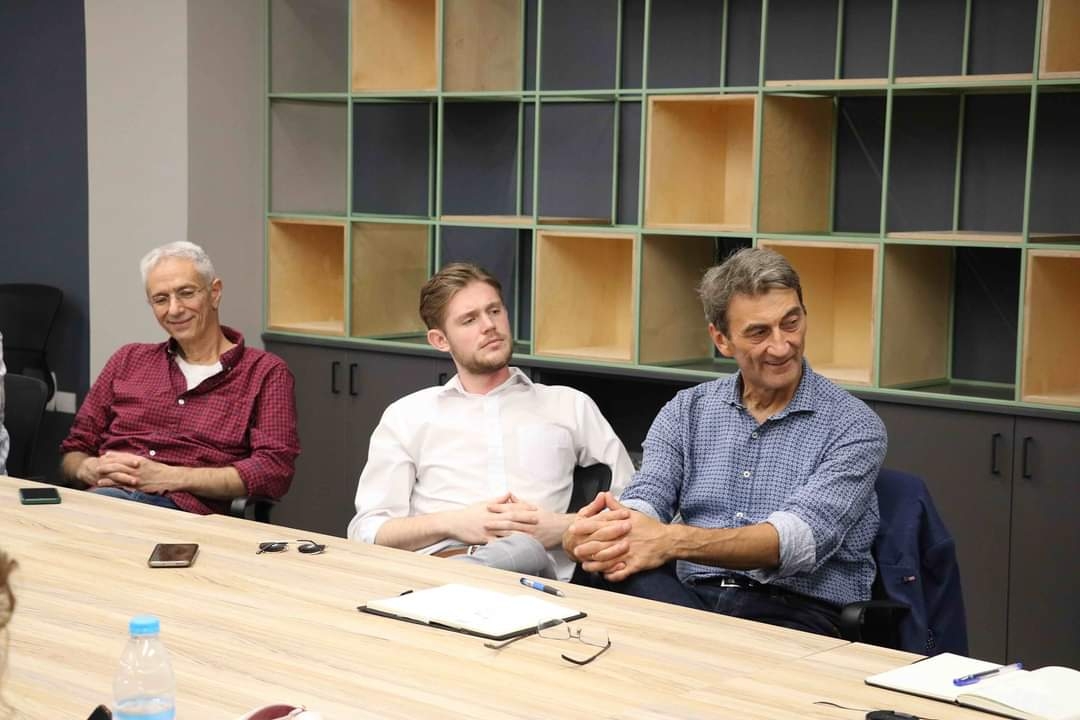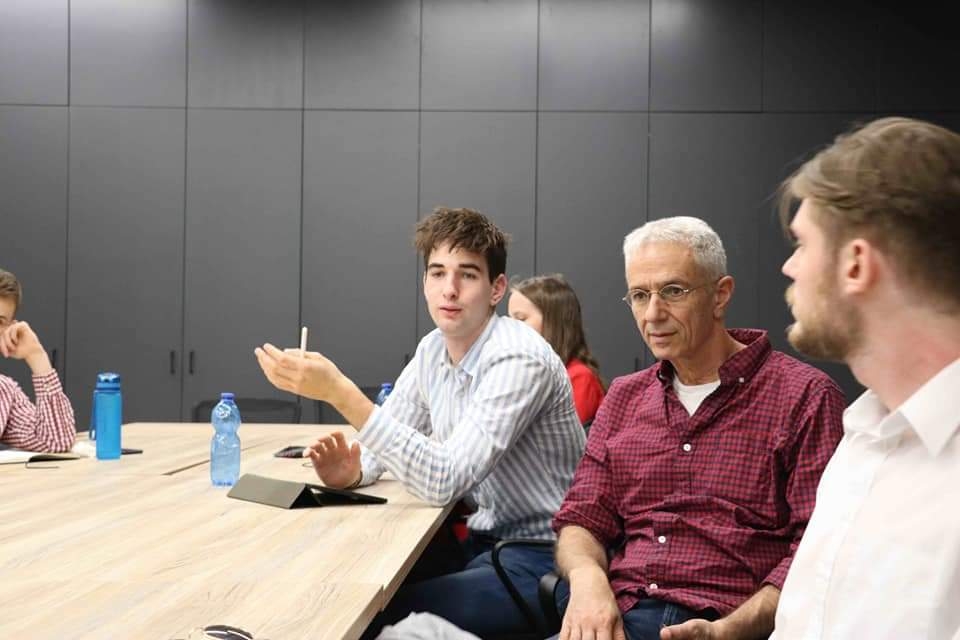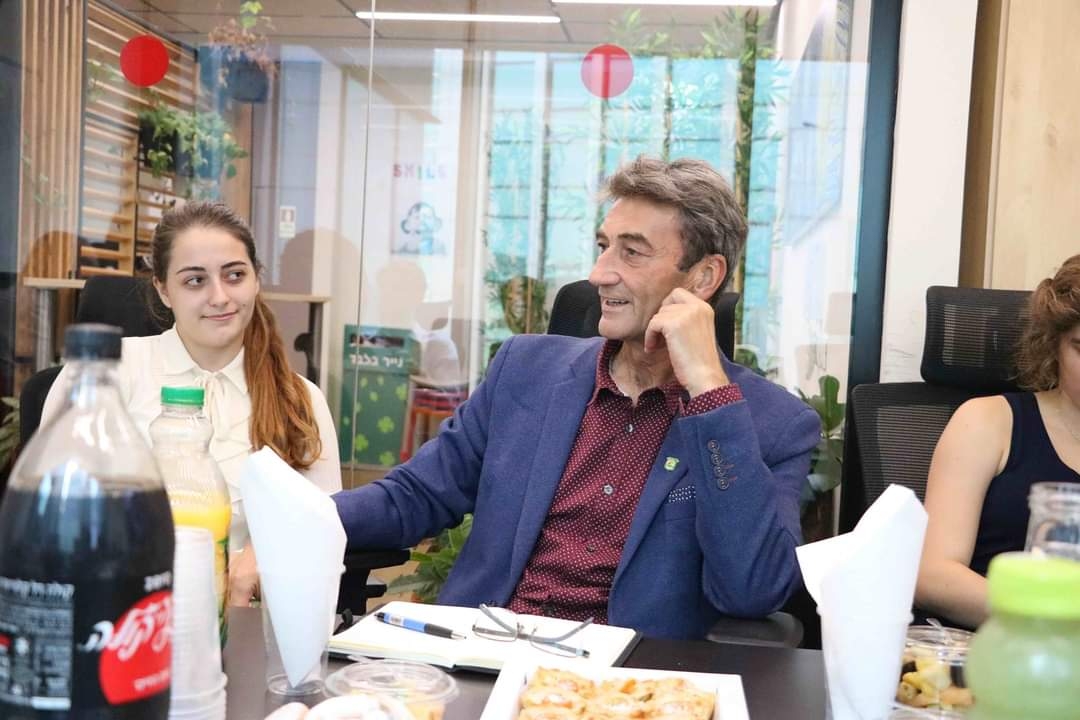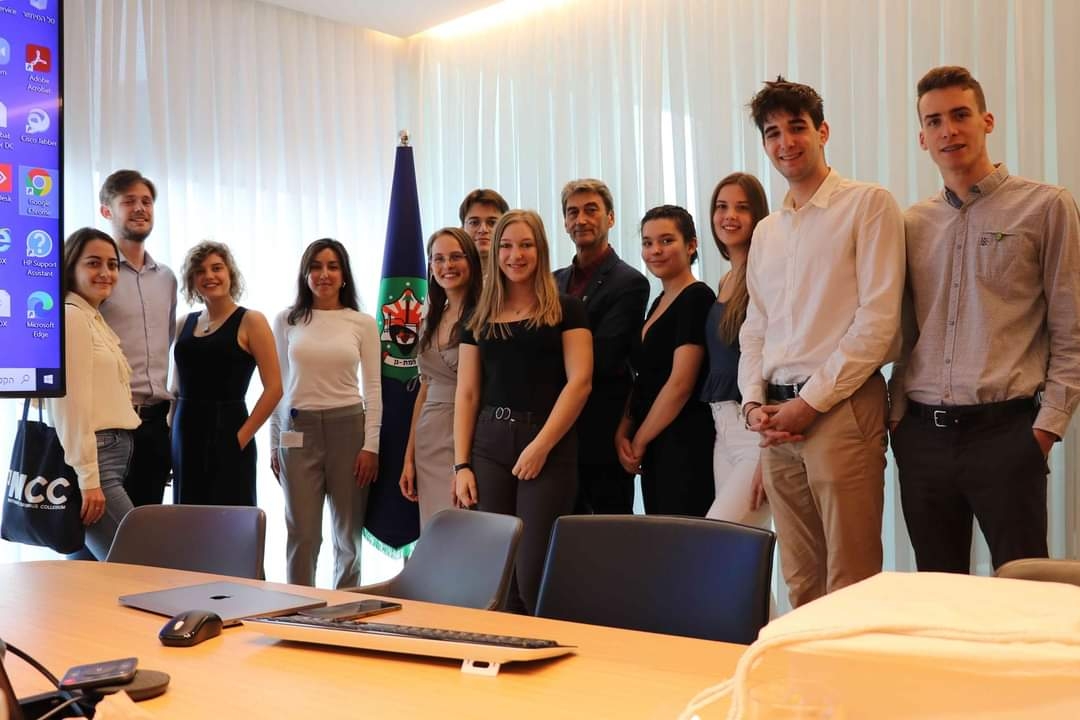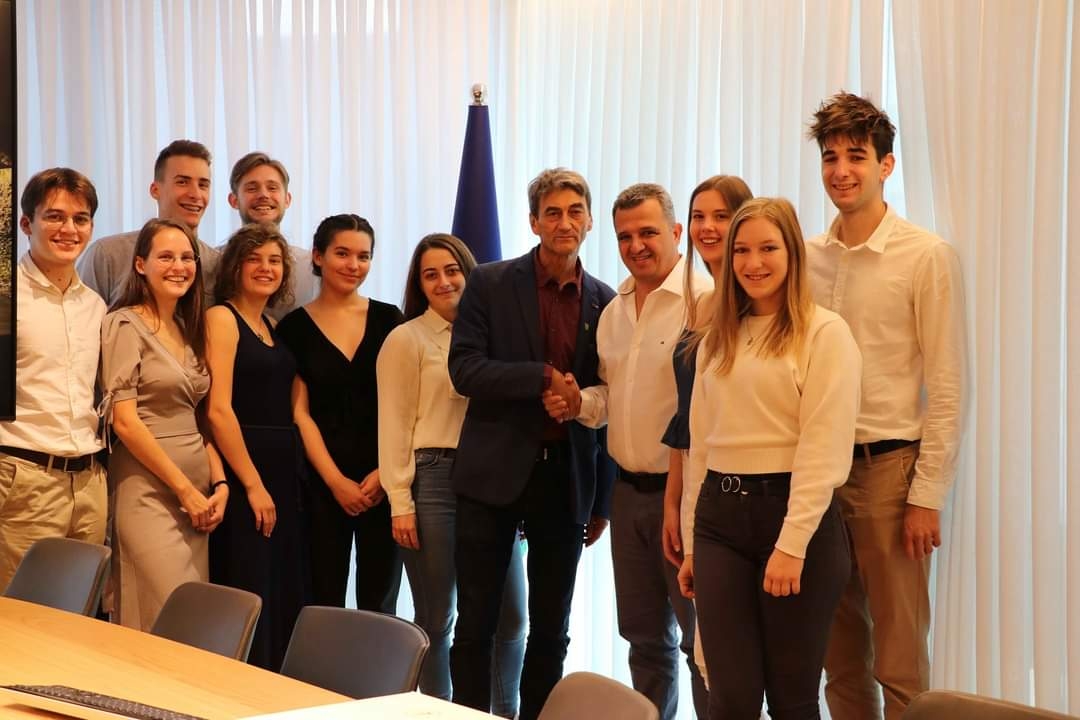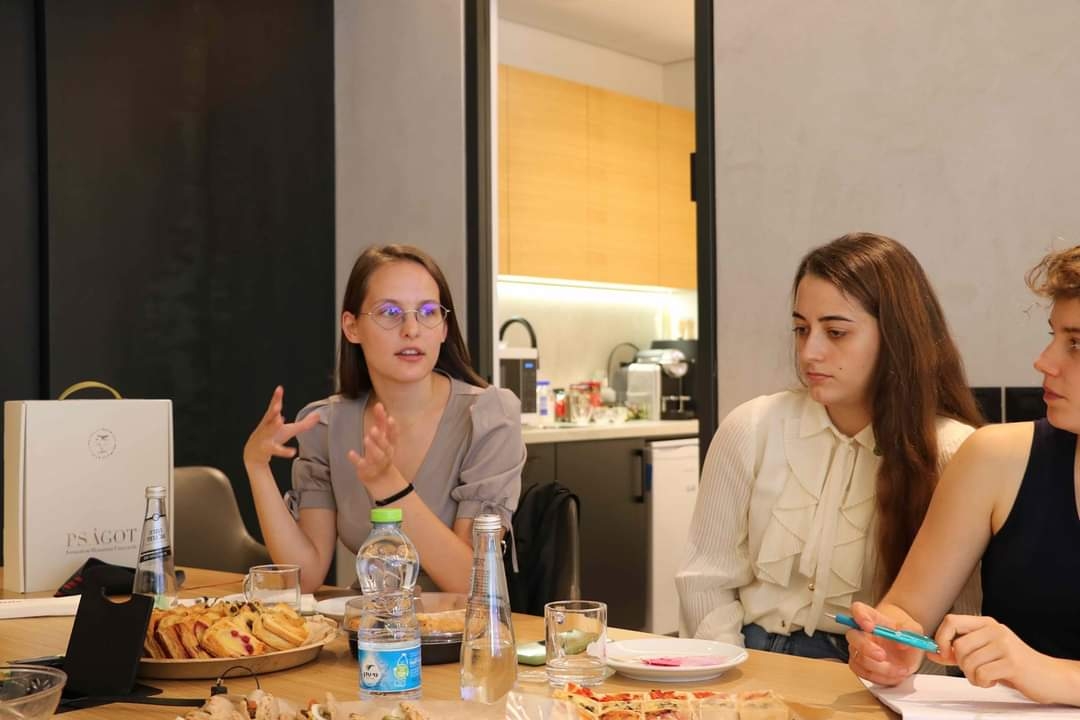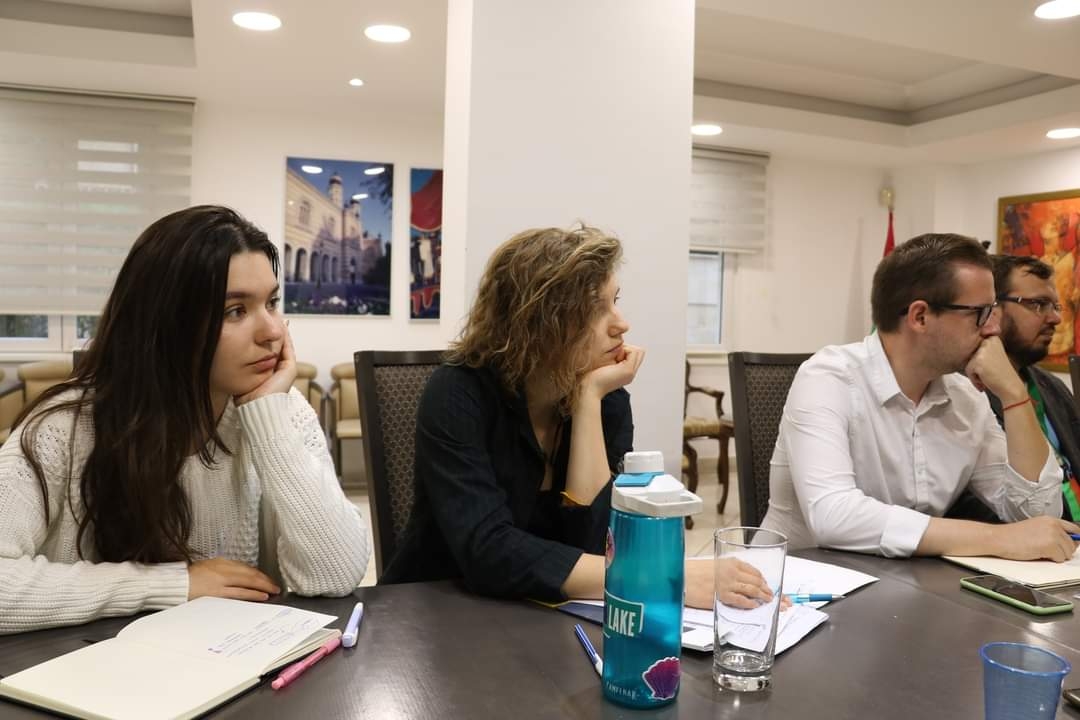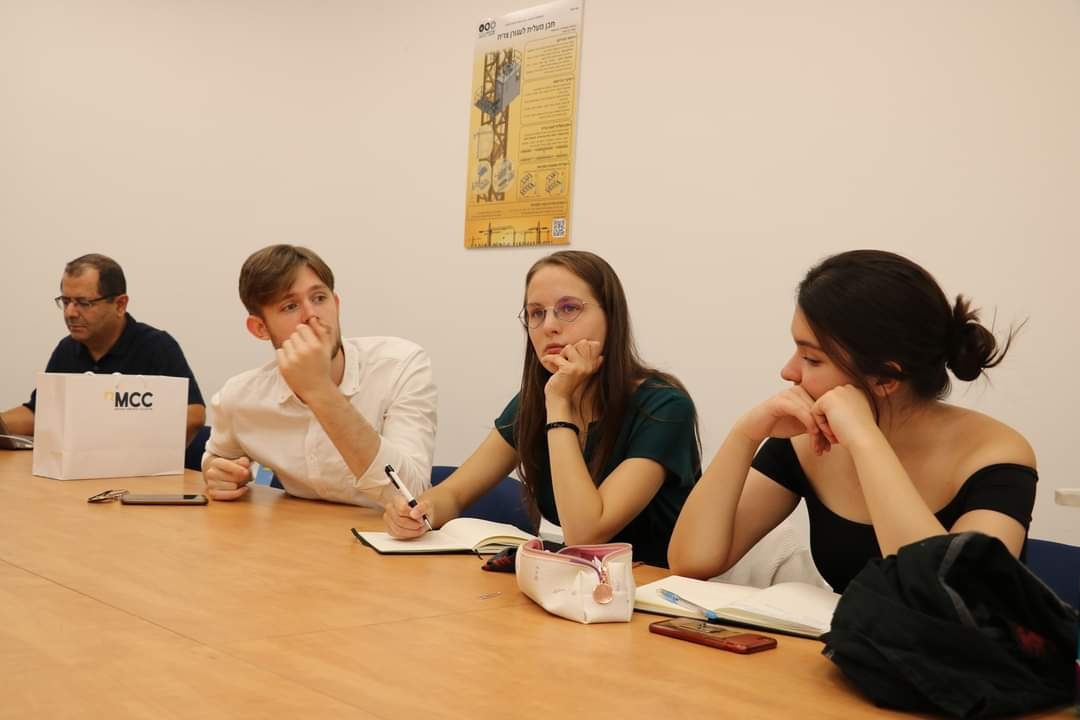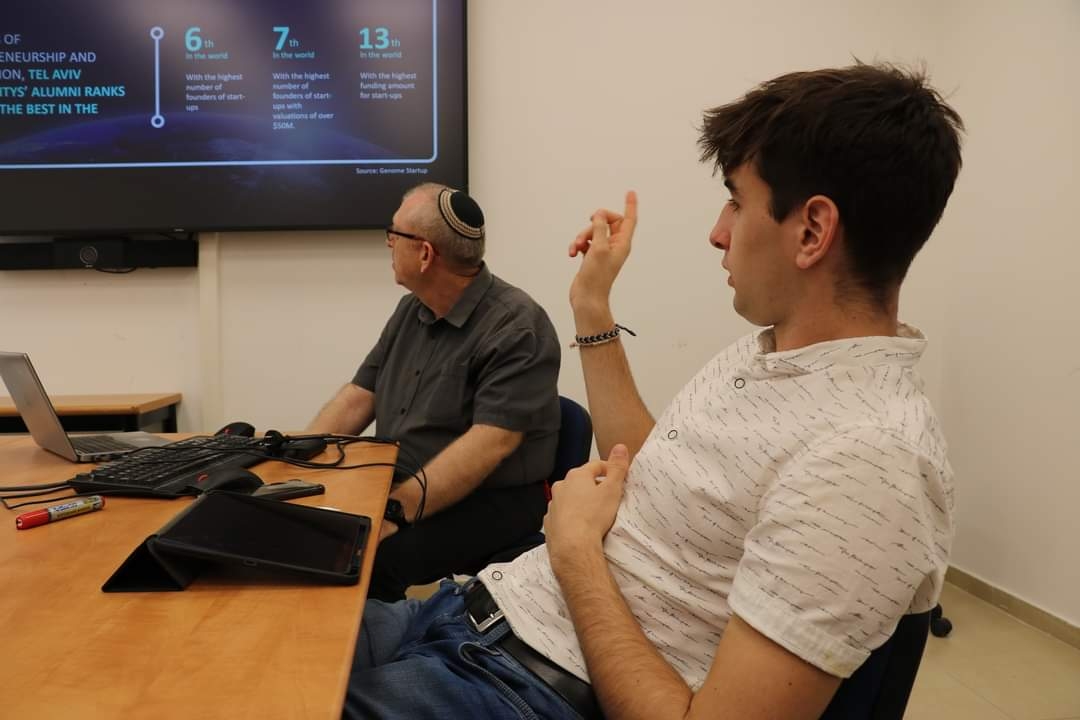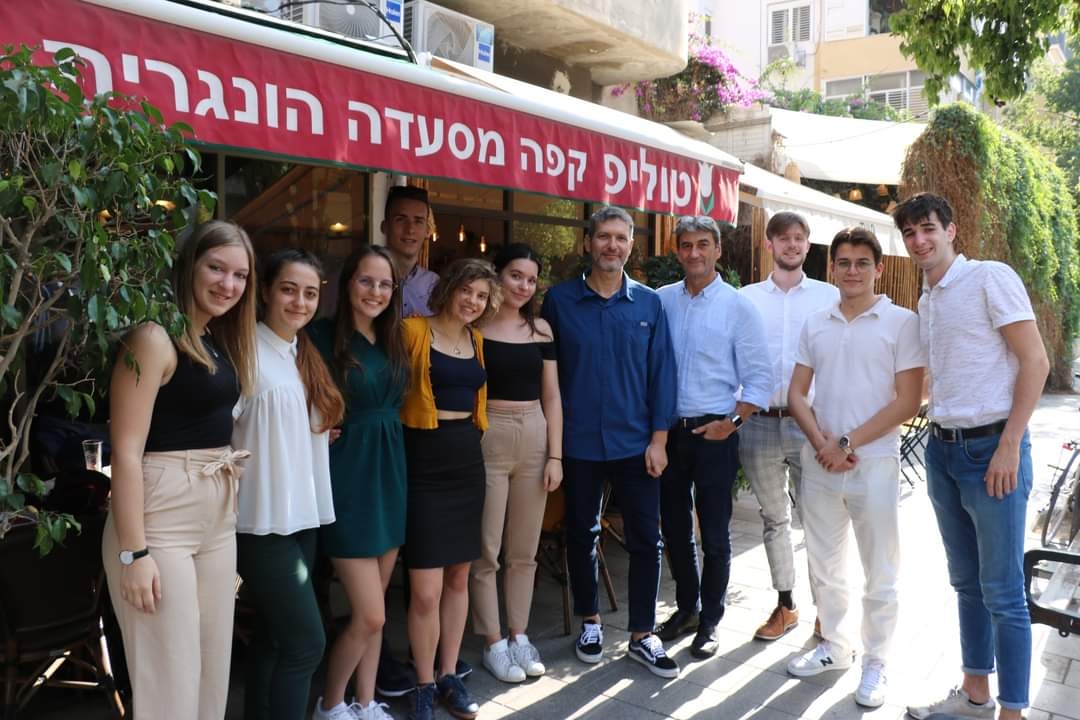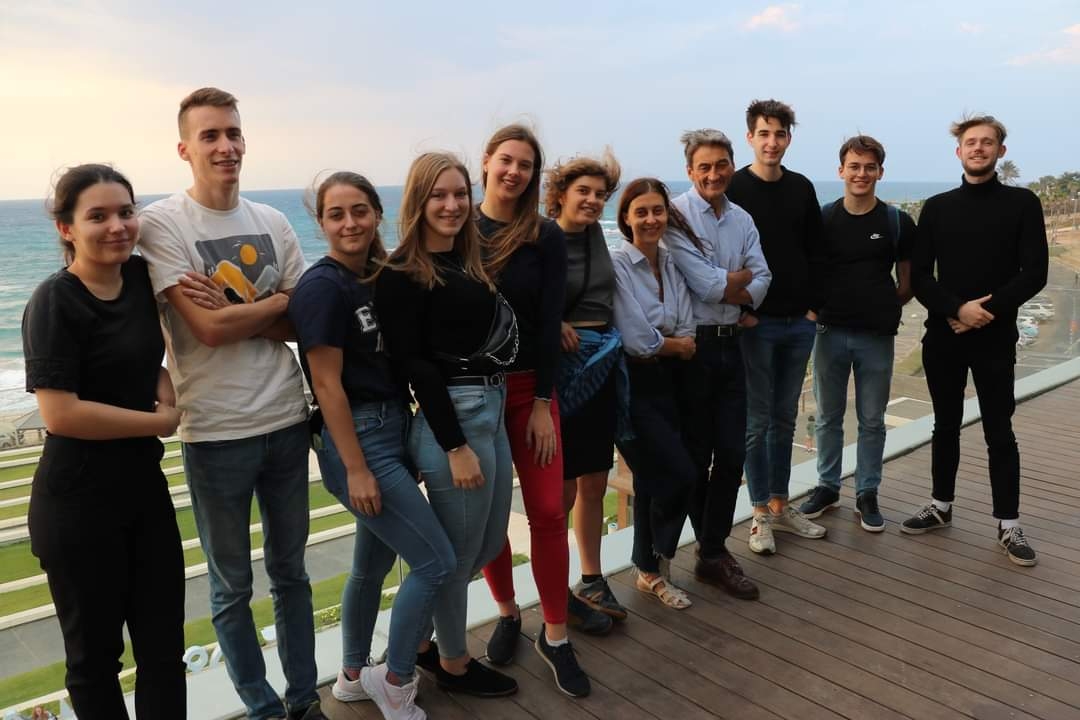Reading time: 5 minutes
The students of the Center for Next Technological Futures have mastered this mindset during their study tour in Israel.
When resource scarcity, the need to catch up and cultural diversity come together, they can create a mix that almost provokes innovation success. Just hours after the plane landed, Anna Koutikov, manager of the Israel Innovation Center, made this surprising statement to the students of the Centre for Next Technological Futures in Tel Aviv.
And the search for the secrets of Israel's innovation success could hardly have started in a better place than in the study of the centre's founder, former Israeli President Shimon Peres, who believes that innovation is one of the common denominators that can not only lead the country to success, but that everyone agrees on how to encourage.
During a working dinner, the students also learned from Zsófia Boros how a talented and ambitious girl from Corvinus University can get to one of Israel's largest venture capital funds, YL Ventures. According to Zsófia, Israel being a small market, startups are thinking in terms of B2B solutions, which is a direct route to global markets.
Although the bestseller Start-up Nation by Dan Senor and Saul Singer was required reading for the students on the Israel study tour, it soon became clear on the second day of the tour that Israel today faces the challenge of becoming a Scaleup Nation.
That's why Yanay Geva, an advisor at Start-up Nation Central, and students from the Centre for Next Technological Futures discussed the epochal shift from an Israeli startup being acquired by a global company to going public on its own.
The students' journey led them almost directly to the Tel Aviv Stock Exchange (TASE), where Kobi Abramov added another building block to the Israeli model: today, the first IPOs of successful startups are held simultaneously on the New York NASDAQ and TASE.
Uri Gabai, Vice President of the Start-up Nation Policy Institute, provided the next building block, as in Israel each ministry has a chief research officer whose job is to tender research projects to economic actors in a competitive system, linked to the ministry's portfolio.
Not coincidentally, the day was closed by business guru and serial entrepreneur Saul Orbach, who drew on his own experience to show students what makes a private venture capital company successful, and why semi-public venture capital companies are not effective.
In Haifa, Professor Ido Erev was already a familiar face to the students of the Centre for Next Technological Futures, having hosted a very successful Schumpeter Lunch Debate at the MCC just three weeks ago.
But now he was joined by Professors Michael Ehrlich and Reuven Katz to present Technion's latest project, the Inventors' Centre. Together, they are working to ensure that the inventor and developer does not stop at discovery, but - armed with entrepreneurial skills - creates a viable product and takes it to market.
In contrast, the leaders of the Road2 accelerator in Haifa, Eitan Kyiet (CEO) and Rafi Nave (President), discussed the development of more mature startups with students. The accelerator, which specializes specifically in artificial intelligence and its applications in healthcare, not only provides startups with technical advice and venture capital, but also offers them the best infrastructure with one of Israel's largest supercomputers.
At the dinner, Diana Grosz, Head of Legal at TMF group, spoke not only about how she came to Israel's business world with her law degree from ELTE, but also about how to successfully integrate into the country's unique and in many ways unique work environment.
In Jerusalem, Molly Livingstone, head of the Institute for Technology Transfer at the Hebrew University of Jerusalem, summed up the secret of the Israeli innovation miracle for the students of the MCC's Technology Futures Workshop. With 40% of the revenues from commercially successful R&D, which can be measured in patents, going to the researchers, 40% to the university and 20% to the research institute/lab, all players have a stake in getting as much research as possible to market - as a product.
To this formula, the Mayor of Ramat Gan, Carmel Shama-Hacohen, and the Director of Innovation, Mor Harir, of the city of Ramat Gan, which is building skyscrapers in the Tel Aviv neighbourhood, have added a new formula: 3P, or People - Planet - Profit. In other words, a project that aims to improve the environment can be successful if it meets the interests of the people while making a profit.
However, innovation is born in competition, and this was discussed with the students by David Wiernik, head of NNG, after he explained in detail that cybersecurity today faces a new problem: protecting cars from hackers. Although car manufacturers have not yet really recognised the dangers of this, competition is already on the rise.
Finally, at the working dinner, Amiram Porath, author of several innovation management books, closed the day with another formula: 50 - 50. In other words, only those innovations and industrial development projects can be successful where the state and the entrepreneur share the burden and the state support does not go towards 50%.
Although we very often use the phrase "thinking outside the box", the students also learned from former Science Minister Daniel Hershkowitz that the phrase in practice means "thinking between the boxes". The essence of innovation is precisely to combine ideas that are locked in individual boxes.
During a working lunch, Andy David, Director of Innovation at the Israeli Ministry of Foreign Affairs, discussed with the students how policies can help to combine ideas.
Professor Joachim Meyer and his colleagues at Tel Aviv University showed students the institutions needed to do this, such as the university's special system of incentives for researchers to file patents.
